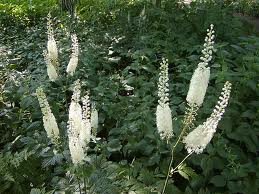Hot flashes have been plaguing menopausal women, and some patients have resorted to hormone replacement therapy. However, quite a few concerns have arisen over deleterious effects of hormone replacement lately. It is not surprising, that many women turn to herbal remedies for relief.
Of the commonly used alternatives, the most useful one seems to be black cohosh (the botanical name is Actaea racemosa, or the older name Cimicifuga racemosa). Three trials out of four showed that black cohosh was beneficial for patients suffering of hot flashes. Another review showed that in nine out of ten studies black cohosh relieved menopausal symptoms. At this point the safety of long-term use is not known, as none of the trials lasted longer than 6 months.
A recently published review involved 2800 women, and all forms of black cohosh were taken into account. The incidence of adverse effects was low at 5.4 % and most effects were mild, like stomach upsets.
As there are isolated reports of adverse effects to the liver, it may be necessary to monitor liver function on patients who take black cohosh preparations. Dosage is also of importance: of the crude drug amounts between 40 and 80 mg per day should be taken.
If the dried rhizome or root is taken, dosage should be 40 mg, but not exceeding 200 mg (or 5 to 30 drops of the fluid extract) per day.
More info on bioidentical hormone replacement: https://www.askdrray.com/bioidentical-hormone-replacement/
Reference: The Canadian Journal Of Diagnosis, September 2004,Vol 21,Nr.9, pg.43
Last edited October 27, 2014






